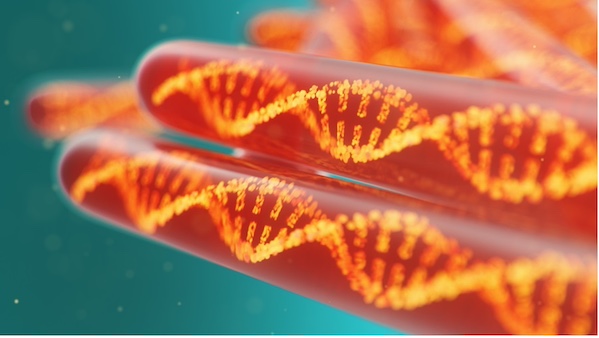Testing Method Could Help More Patients Receive Right Cancer Treatment
March 26, 2024
Source: drugdu
 316
316
 Cancer treatment isn't always a one-size-fits-all solution, but the field of cancer research is making strides in matching patients with the most effective treatments for their specific conditions. A groundbreaking study now points to a significant finding related to testing that could enable thousands of cancer patients to receive the precise treatment they need.
Cancer treatment isn't always a one-size-fits-all solution, but the field of cancer research is making strides in matching patients with the most effective treatments for their specific conditions. A groundbreaking study now points to a significant finding related to testing that could enable thousands of cancer patients to receive the precise treatment they need.
The research led by the University of Oklahoma (Oklahoma City, OK, USA) compared the effectiveness of immunohistochemistry (IHC) and next-generation sequencing (NGS) tests in newly diagnosed cancer patients to guide their treatment plans. These tests target the detection of high levels of microsatellite instability, a condition indicating the DNA's diminished capacity to correct replication errors. Identifying microsatellite instability is crucial, particularly in colon and endometrial cancer patients, as it marks a higher likelihood of a positive response to immunotherapy, which enhances the immune system's ability to fight cancer, compared to other treatments. IHC detects the absence of mismatch repair proteins responsible for correcting DNA copy errors, leading to microsatellite instability, while NGS assesses genetic mutations that indicate the same condition.
The analysis showed that NGS was more effective in identifying patients with microsatellite instability. Despite this, oncologists predominantly rely on IHC. The study suggests that adopting NGS, either alone or alongside IHC, could significantly increase the number of patients accurately diagnosed and appropriately treated for their cancer. For instance, in 2022, there were 151,030 new cases of colon cancer and 65,950 new cases of endometrial cancer diagnosed in the U.S. By utilizing NGS in conjunction with IHC, an additional 1,510 colon cancer cases and 3,891 endometrial cancer cases with microsatellite instability could have been identified, totaling 5,401 patients who might otherwise have been overlooked with IHC alone. This finding is expected to generate important discussions about whether to integrate NGS with or as an alternative to IHC testing for better patient care.
“This study has significant implications because, by changing the tests we use in certain situations, we anticipate that many more people can be accurately diagnosed and receive life-extending therapy,” said medical oncologist Abdul Rafeh Naqash from the University of Oklahoma who helped lead the study.
Source:
https://www.labmedica.com/immunology/articles/294800625/testing-method-could-help-more-patients-receive-right-cancer-treatment.html
Read more on
- Gusekirumab Injection Accepted by CDE, Multiple Pipelines Advancing Simultaneously March 4, 2026
- Yifan Pharmaceutical’s teriparatide injection has been accepted by the CDE (Center for Drug Evaluation), adding a new domestic player to the osteoporosis treatment field March 4, 2026
- //news.yaozh.com/archive/47318.html PD-1 sales surge March 4, 2026
- A major breakthrough! Roche’s oral BTK inhibitor achieves its third Phase III clinical trial victory, a game-changer in the multi-billion dollar MS (manufactured pharmaceuticals) market. March 4, 2026
- GB19 Injection Approved for Clinical Trials of Cutaneous Lupus Erythematosus March 4, 2026
your submission has already been received.
OK
Subscribe
Please enter a valid Email address!
Submit
The most relevant industry news & insight will be sent to you every two weeks.



